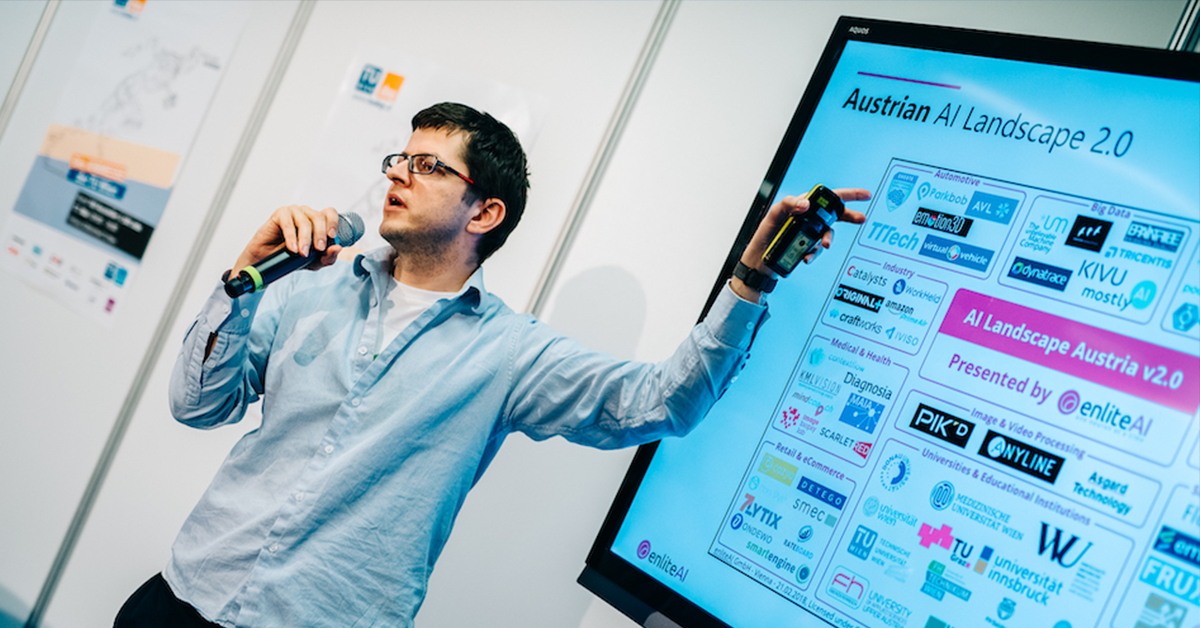Clemens Wasner is an expert in the field of artificial intelligence and the founder of Enlite AI. While anticipating the discussion on "Artificial Intelligence: The World in Five Years", that will take place on 13 September at the VIP (Vienna Innovation Party) night, he spoke with derBrutkasten.com about the impact of AI on work, society and us as individuals.
What effect will Artificial Intelligence have on the world of work in five years?
There is this famous quote from Bill Gates: "We always overestimate the change that will occur in the next two years and underestimate the change that will occur in the next ten." With five years already in development, we are right at the middle. I think that in the next five years the situation will normalise somewhat, so AI will be considered a normal part of the job. In the white-collar world, full integration of AI into Office programs will enable novel analytics that now still require programming skills. Recommendation systems will meet us at every turn. For example, when it comes to finding a representation for data or identifying the topic for the next incubator article.
How will society change with Artificial Intelligence?
With the establishment of new technologies, the demands on the work of each individual are slowly but surely increasing. For example, twenty years ago it was often an excuse that you only did a very limited search in selected sources. With Google, there was a rapid increase in opportunities, which is reflected in an increasing number of research results. The same can also be observed for classic management tasks, where each new version of Office, thanks to automation, leads to ever-longer evaluations and presentations.
 Artificial intelligence: "People are bad at using new technologies in the right way" - Clemens Wasner, CEO Enlite AI (photo: (c) Clemens Wasner
Artificial intelligence: "People are bad at using new technologies in the right way" - Clemens Wasner, CEO Enlite AI (photo: (c) Clemens Wasner
Above all, you speak of positive developments. Will there be losers in the advent of artificial intelligence?
So-called technology losers are always there. The question is whether society, politics and economics accept this as God-given, or actively take steps to cushion the consequences. However, the impact will be very different in the region. For example trade in Austria: According to statistics there are approximately 360.000 workers in the retail trade and many of them are women. You do not have to be a clairvoyant to predict a large wave of automation until 2030, especially in this area. The counterexample is classic male professions such as truck drivers in emerging markets. Due to the lack of qualified truck drivers, European truck manufacturers are keen to produce autonomously moving trucks as soon as possible. This has a positive impact on Western Europe.
What does AI mean for us as individuals?
Laws like in Germany, where, for example, employees do not have to be available after work, I expect on a large scale in Europe. Otherwise, we are threatened with a 24/7 working world. Unfortunately, we humans are very bad at using new technologies correctly. This starts with children playing until they fall asleep, to adults who experience self inflicted stress with notifications on their smartphone.

